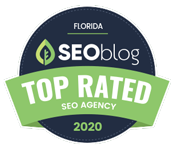Are You Wasting Ad Spend? 6 Red Flags in PPC Campaigns
Is Your Ad Spend Going to Waste? Six Key Warnings on PPC Campaigns discuss PPC management for small businesses on anything you need to know. Want examples, tips, and strategies to improve the results?
Our ultimate article on PPC management dedicated to small businesses is all about scratching the surface on the FAQS & Mistakes sections, or introducing you to the world. What in itself might be small business PPC management? Why does it matter and how should you use it effectively?
What is PPC management for small businesses?
PPC, or pay per click, or PPC advertising is about paying a fixed charge whenever a visitor clicks on your website. It may sound simple, but getting the most out of each click is a real perceptive skill. This is especially so in the case of small business owners working on tight budgets.
PPC management for small businesses is the process of organizing, executing, monitoring, and optimizing a PPC campaign to get maximum ROI (Return on Investment). In a typical scenario, you will have the following activities:
- Keyword research and selection
- Writing compelling ad copy
- Designing effective landing pages
- Monitoring click-through rate (CTR) and conversions
- Adjusting targeting based on performance
A lot of entrepreneurs in small businesses try running Google Ads by themselves. After all, without experience or strategic insight, there is little that separates this process from throwing money into a hole in the ground. The newly established freelance PPC Management office is grand because of this.
Whether you have Google Ads, Bing ads or the PPC platforms from social medial like Meta or LinkedIn, the SMB needs strategy backing and to be scrutinized continuously in search of inefficiencies.
Why PPC management for small businesses Matters for FAQs & Mistakes
Most small businesses already face marketing resource constraints. They don’t have teams of digital marketers or six-figure budgets to test unlimited variations of ads. Every dollar spent must drive value. That’s what makes effective PPC management not optional—but essential.
In the FAQs & Mistakes category, misinformation or overlooked details can lead to huge waste. For example, here are several common questions and misconceptions small business owners have about PPC:
- “If I bid more, I’ll always rank higher, right?” – Not exactly. Google Ads use a quality score system, which means high bids need to be backed by relevant content and user behavior.
- “I set up my campaign last year. It’s running fine.” – Stale campaigns often perform poorly due to changing competition and search trends. Active management is necessary.
- “Negative keywords aren’t that important.” – This is one of the top Google Ads waste signs. Ignoring negative keywords can skyrocket irrelevant clicks and tank your budget.
Understanding how PPC management for small businesses influences your Google Ads waste signs performance can make or break your success. We’ll explore real-world examples next.
For example, take a local plumbing business targeting the keyword “emergency plumber Milwaukee.” Without proper filters, their ad might show for terms like “DIY plumbing kits” or “how to become a plumber”—irrelevant queries that lead to wasted spend. An actively managed PPC campaign would use negative keywords like “DIY,” “courses,” and “schools” to eliminate these mismatches.
Another common scenario: a small accounting firm runs a Google Ads campaign targeting “tax filing help.” Their landing page talks about corporate tax planning—relevant to some users but not to the majority searching for simple tax filing assistance. This disconnect leads to low quality scores, high CPC (cost-per-click), and ultimately poorer ad performance. Proper PPC management would adjust the landing page or split campaigns to align intent with content more precisely.
PPC management ensures not only that your ads reach your ideal audience, but also that users are greeted with matched messaging, strong calls-to-action, and user-friendly experiences that drive conversions—not just clicks.
In short, the right approach to PPC management for small businesses is about maximizing efficiency and aligning all campaign components—from search term to sales funnel—to reduce ad waste and improve ROI.
As we continue breaking down the most common mistakes and warning signs that indicate your ad dollars might be wasted, keep referencing these core principles. Recognizing early signs of ad waste is the first step toward cost-saving, results-driven PPC management.
Common Mistakes in PPC Management for Small Businesses
Even well-intentioned PPC campaigns can fall flat if basic strategies aren't followed. In the realm of mom-and-pop businesses, budgets are thin and every click, conversion, and call has to be optimized. Here are the ones to watch out for and correct.
- Neglecting Negative Keywords: If negative keywords are ignored, irrelevant traffic will flow into your site, draining your ad budget with little prospect for conversions.
- Poor landing page experience: Not serving an appropriate page or a slow-loading page to visitors will boost the bounce rate and lower quality scores.
- Set-It-and-Forget-It Approach: PPC management for small-business owners means you must monitor it constantly. Without regular checks and balances, however, campaigns quickly go stale and unprofitable.
- Leaving Match Types Out of It: Using strict-on-only broad match keywords will draw untargeted traffic into the maze. Use a judicious combination of phrase, exact, and broad modified match types for precision.
- Lack of A/B Testing: Missing opportunities to see what messaging resonates best and converts higher is what happens when you do not test the riverbed of possibilities with various ad variants.
Dealing with these mistakes drastically boosts ad efficiency, and on tight budgets, it's the key.
For smaller outfits, it is important to having cleverer tactics that prepare them to step past larger spenders.
FAQs About PPC Management for Small Businesses
The way in which PPC campaigns function is fundamental to extracting the most out of that. This set of the most commonly asked questions tied to PPC management for small entities is furnished herein below:
How much should a small business spend on PPC?
It entirely depends. At the onset, one must know the cost-per-lead goal and number of leads the company wants each month. The budget could even reach at least $500 to $5,000 per month in terms of which industry and competitiveness.
Can local businesses use PPC?
Absolutely; with geo-targeting in tools like Google Ads one can show one's ads only to visitors in a defined region, making PPC perfect for services which serve a local area and brick-and-mortar stores.
How soon until I get results from PPC?
While SEO demands time in showing even one small thing, impressions and clicks in PPC can be expected almost immediately after activating the campaign. It usually takes a couple of weeks of testing and refining for superior performance.
What are the warning signs telling me that something is wasted on Google Ads?
The warning signs you should watch for include high CPC with low conversions, irrelevant search terms triggering your ads, and low-quality scores. These are the conditions themselves calling for a campaign adjustment.
Can I manage PPC on my own?
Many small business owners start their own PPC campaigns, but success usually depends on time availability and expertise. Most can manage it on their own, but outsourcing to a professional will, in practical terms, ensure consistency in results and leave time available for analysis and considering growth opportunities.
Signs You're Wasting Money on Google Ads
There is an indication that when the AdSense of Google is misused, at first it would take not much of the budget but very soon would put into jeopardy as its expansion occurs. Understanding important key metrics allows for the maximization of all Ad Spends for one's business. Here are some ways through which all inefficiencies can be sorted out:
- A low-quality score: Most likely your ads and landing pages will not be relevant to your keywords. High relevance means lower costs for Google and better placements.
- Poor conversion of tracking: If you are not tracking the calls, form submissions, or purchases, it would be unfeasible to know which of the keywords or ads are doing better.
- High bounce rates: The visitor came onto your page after clicking your ad but only a few seconds later, left it, indicating maybe something is wrong in the landing page or needs improvement.
- Limited keyword utilization: The utilization of too broad-based keywords may lead community non-qualified traffic. Level targeting is important and more specifically with tight budgets.
- Minimal extensions: Ignoring little things like sitelinks, callouts, and call extensions can make your ad look duller compared to others.
This will likely help detect the waste of signs from Google Ads and suggests data-driven adjustments to how you manage them so that you are in sync with the strategies of better data use. Keep your campaigns trimmed and optimized, working together with great PPC management for small companies.
Why Ongoing Optimization is Crucial
PPC isn’t a one-time setup — it’s a dynamic ecosystem that requires ongoing tuning. Algorithms change, competitors evolve, and user behavior shifts. A stagnant campaign is a failing campaign. Through continuous review, testing new ad copy, adjusting bids, and analyzing conversion data, small businesses can unlock increased performance month after month.
Ongoing optimization also helps in reducing Google Ads waste signs. Regular improvements can decrease costs while improving results, turning PPC efforts into a reliable growth engine for smaller operations.
Frequently Asked Questions
What is PPC management for small businesses in simple terms?
PPC management for small businesses is a strategy or concept used to improve Google Ads waste signs by focusing on structured, intentional methods.
How does PPC management for small businesses help?
It helps improve performance by aligning your content with search behavior and industry best practices.
Can I apply PPC management for small businesses myself?
Absolutely. With the right tools and structure, even beginners can begin applying these principles effectively.
What tools should I use?
Start with Google Search Console, SEMrush, and keyword research tools. These provide visibility into how PPC management for small businesses impacts performance.
Why PPC Management for Small Businesses Matters Now More Than Ever
In the contemporary digital environment, small businesses cannot afford spending money on campaigns that fail to convert. That is where small business PPC management comes up as a vital element. However, the budget needs to be less and the limited number of clicks count. Strong PPC strategy ensures your ads reach the right target at the proper moment with the accurate message.
One of the key signs that Google Ads is not utilized well is unnecessary keywords spending. Those words could deliver traffic, but if they don't match with the offers or products that they stand for, they wouldn't provide the driving force behind conversions. The PPC management minimizes this flaw with audit, A/B testing, and setting up negative keyword lists-the primary methodologies used to cut the slack in ROI improvement.
One of the other issues relates to poor lander alignment: directing traffic to irrelevant or poorly optimized pages usually results in high bounce rates. When we match landing pages with ad campaigns, our quality scores improve, and an improved user experience can generally dramatically improve conversion probabilities. Good PPC management helps in onboarding customer communication so that customers generate action from clicks.
And, by the way, how should PPC management help with competitor benchmarking? If an insight derived from tracking tools like SEMrush or Ahrefs tells you where exactly you are, for example, in terms of ad planning compared with major stakeholders, then working out the aspects of association between you and competition much less direct. They engage with your assets, or do they bid for your brand terms? Do you conduct the search? These aspects are important for the small business that is just breaking into the niche market or trying to pick up local leads.
Another segment to address: ad fatigue. Customers who see the same visuals or ad copies repeatedly become desensitized. This reduces click-through rates and inflates costs per acquisition. Smart PPC managers rotate ad creatives regularly while tracking engagement metrics to stay ahead of the curve. This not only keeps your messages fresh but also builds stronger brand recall.
Lastly, demographic targeting cannot be overstated. One of the greatest Google Ads waste signs is targeting users who have no interest or need for your offering. PPC management uses geo-targeting, age filters, audience interests, and device preference data to pinpoint high-value audiences. Whether you are a local bakery trying to reach neighborhood customers or a B2B company targeting corporate personas, focusing your budget on the right eyes improves performance dramatically.
Ready to Improve? Let’s Audit Your Ad Performance
In the end, don't let losing opportunities to grow because of fruitless strategies. Once you are not sure of what's working and what's not at this time, then let another consideration be all about this. Link2City is focused on providing data-driven PPC management tailored for small businesses. Our experts are also keen on auditing the whole system and aiding the client to locate the hidden inefficiencies.
Let’s audit your ad performance and start maximizing every marketing dollar. Whether you want to eliminate Google Ads waste signs, improve ROI, or outperform rivals, we’re here to lead the way. Reach out today and transform your PPC from a cost center into a revenue driver.
Take Action Now
Start by exploring more on how small businesses can thrive with streamlined digital strategies:
- Smarter Ad Targeting Tips
- Landing Page Optimization Insights
- What Is PPC? – Investopedia
- Google Ads for Small Business – Forbes
Let’s audit your ad performance — because every dollar and every click counts.





























